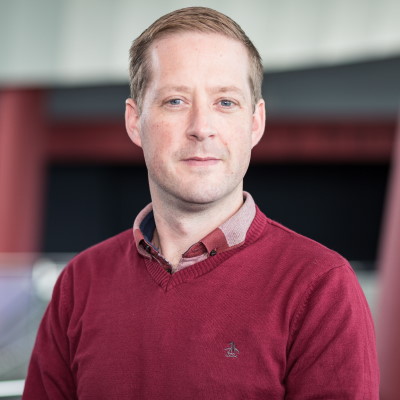Seeking new insights into DNA for more personalised breast cancer treatment
Dr Alex Eustace is leading new, HRB-funded research at Dublin City University to deepen our understanding of personalised medicine for breast cancer. He talks to Dr Claire O'Connell ...
4 min read - 26 Sep 2019

Cancer is a diagnosis that no-one wants. But thanks to the advent of more tailored drug treatments, some forms of breast cancer are mostly curable. The challenge remains, though, to make treatments even more precise and targeted to specific cancers, and this is where Dr Alex Eustace is focusing his HRB-funded research.
Alex, the Research Lead for Prof John Crown’s research group Molecular Therapeutics for Cancer in Ireland based at Dublin City University, is looking at the underlying genetics and cellular regulation of breast cancer for answers. The hope is that the four-year project will help more women receive the right treatment to address their particular form of breast cancer.
A medical upbringing
Medicine runs in Alex’s family, and in many ways it influenced his youth, not least because his father – an expert in tropical medicine – was an army doctor who left Ireland in the 1960’s and lived in different countries from Germany (where Alex was born) to Borneo and Belize, before returning home to Ireland to set up a practice as a GP in North Dublin. ‘By the time I was 12 I had probably lived in a dozen homes in seven different countries’. says Alex.
Alex studied science at Maynooth University, specialising in biochemistry, and went to work in a bioprocessing company at DCU called ARCHPORT before doing a PhD at DCU in cancer biology. For his doctorate, he worked with Professor John Crown and Dr Norma O’Donovan on a new drug combination for malignant melanoma (skin cancer) that had spread, and that work paved the way for clinical trials of the treatment in the USA.
Then Alex left DCU to work with Prof Bryan Hennessy, a consultant oncologist based in the Royal College of Surgeons in Ireland and Beaumont Hospital. He continued to work on a sub-type of breast cancer called HER-2 positive, and his research supported the initiation of a clinical trial in Ireland for women with HER2-positive breast cancer.
More precise medicine
Now, with an Emerging Investigator Award from the HRB, Alex wants to increase our understanding of how genes and biochemical pathways can affect breast cancer, and so show the way to even more personalised treatment.
‘In a large proportion of breast cancers, maybe 30-40%, we see a change in a gene called PIk3CA. This in turn affects the activity of a particular enzyme, a kinase. There are now drugs to tackle this kinase activity, but we need to know more about the cancers that will respond well to these drugs’. he says.
‘My research is looking at parts of the DNA that are involved in regulating the activity of this kinase and related molecules. We hope to identify the changes in DNA that can predict how a cancer will respond to the drugs that block the kinase activity. That way we hope that more people who could benefit from the drug can be identified’.
Meeting the challenges
One of the aspects that Alex enjoys most about his work at the National Institute of Cellular Biotechnology in DCU is the intellectual challenge of looking for gaps in our knowledge and designing and carrying out experiments to find out more.
‘We are looking at DNA in new ways, figuring out more about the parts of the genome that are involved in switching genes on, and it’s very exciting’. he says. ‘I think what we learn from this will have an impact beyond breast cancer, I think it will be of interest for any gene where a mutation or change in it is linked to a disease’.
Outside of work, Alex enjoys many sports-related challenges too, including coaching hockey and long-distance running. Sport is something of a family affair, too. ‘My three sons play hockey and GAA, and my wife is also a long-distance runner, so we compete with our marathon times’. he says.
And each time he meets a challenge, he is straight on to the next one. ‘I do find it hard to sit back’. says Alex. ‘I am always looking forward to the next thing’.
4 min read - 26 Sep 2019



